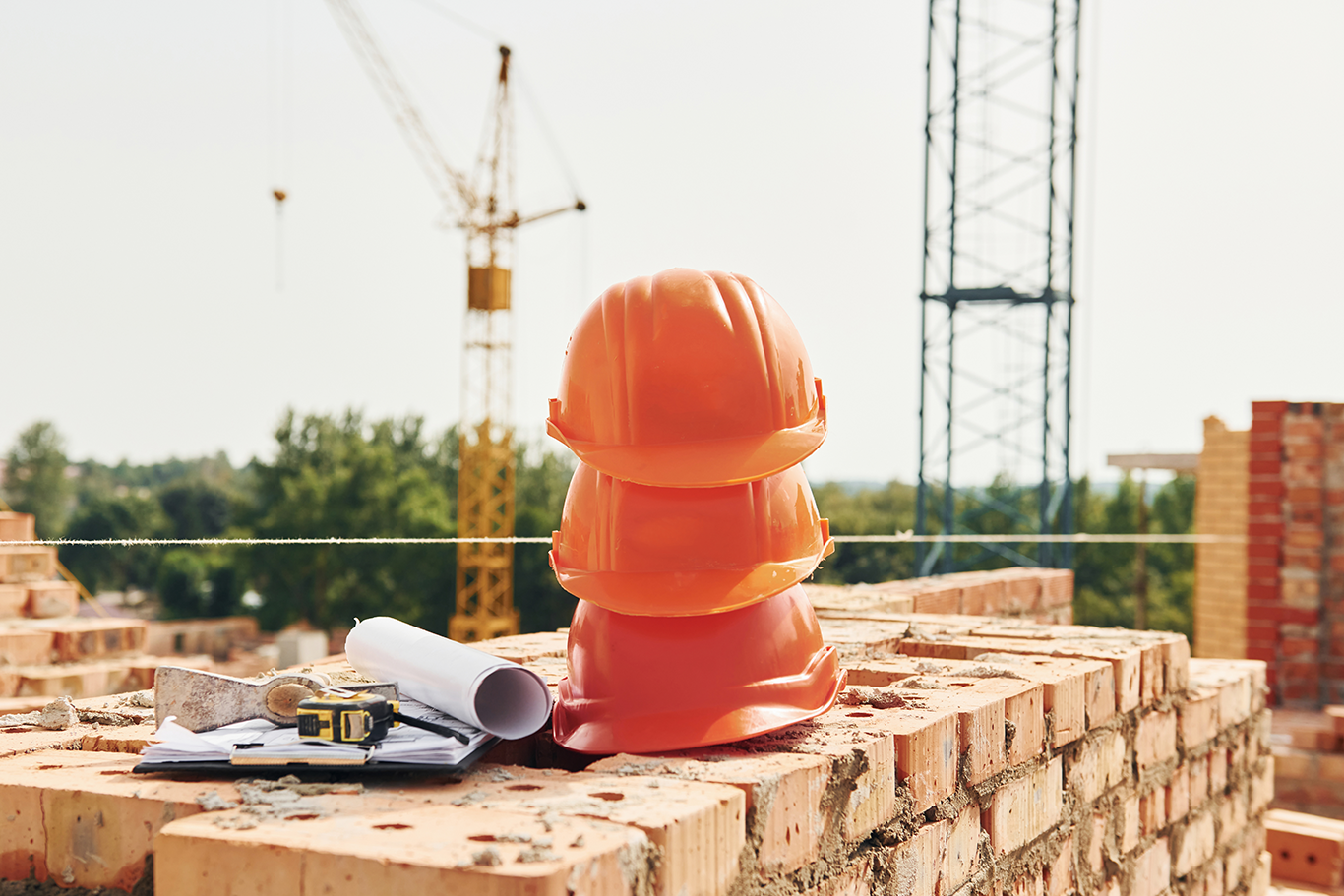Colorado’s restaurant scene is a vibrant and vital part of the state’s economy, with barbecue joints playing a special role in this culinary landscape. With over 14,400 restaurants statewide, Colorado ranks fifth nationally in restaurants per capita, reflecting a rich culture of dining options that locals and visitors alike cherish. Among these, BBQ restaurants stand out for their unique flavors and community appeal. This guide explores the key insurance considerations for Colorado BBQ restaurants, helping owners protect their businesses while navigating the complexities of the local market.
Understanding the economic impact and operational challenges of running a BBQ restaurant in Colorado is essential. For instance, every additional dollar spent in local restaurants contributes $2.21 to the state economy, underscoring the ripple effect these establishments have beyond their doors. This guide will cover the insurance types most relevant to BBQ restaurants, the risks they face, and how to tailor coverage to meet Colorado’s specific environment.
Before diving into coverage specifics, it’s worth noting the dynamic nature of the industry. Recent developments such as the closure of AJ’s Pit Bar-B-Q in Denver amid employee tax allegations highlight the importance of comprehensive risk management. Meanwhile, celebrated spots like Post Oak Barbecue and GQue Barbeque continue to set high standards for quality and customer loyalty in Colorado’s BBQ scene.
Understanding the Unique Risks for Colorado BBQ Restaurants
BBQ restaurants face a distinct set of risks compared to other dining establishments. The use of open flames, smokers, and imported woods, such as the Texas wood used by Post Oak Barbecue, introduces fire hazards that require specialized attention. Additionally, food safety is paramount, given the slow-cooking methods and handling of large quantities of meat. The intricacies of maintaining the right temperature for hours on end can lead to potential foodborne illnesses if not monitored closely, making it essential for BBQ chefs to be well-versed in food safety protocols and to have regular training sessions for their staff.
Colorado’s climate and regulatory environment also influence operational risks. Menu-price inflation has been the highest in the nation in 2023, which can affect profitability and cash flow management. Moreover, employee-related risks, such as tax compliance and labor laws, have recently come under scrutiny following incidents like the closure of AJ’s Pit Bar-B-Q. These factors make it crucial for BBQ restaurant owners to have tailored insurance coverage that addresses both traditional restaurant risks and those unique to the BBQ niche. The fluctuating costs of ingredients, particularly meat and specialty spices, can further complicate budgeting, necessitating a keen eye on market trends and supplier relationships to ensure consistent quality without breaking the bank.
Beyond physical risks, reputational damage can be a concern. BBQ restaurants often build their brand on authenticity and community trust. Negative publicity from legal or regulatory issues can impact customer loyalty significantly. Thus, coverage that includes protection against such liabilities is advisable. Furthermore, the rise of social media means that a single negative review or incident can spread rapidly, amplifying the impact on a restaurant's reputation. Engaging with customers through social media platforms and actively managing online reviews can help mitigate these risks, allowing BBQ restaurants to foster a positive community presence and maintain their loyal customer base.
Additionally, the unique culture surrounding BBQ dining often involves community events, competitions, and festivals, which can introduce their own set of risks. Participating in local BBQ competitions or hosting events can enhance visibility and customer engagement but also raises concerns regarding liability and safety. Ensuring that proper permits are obtained and that safety measures are in place during these events is essential to protect both the business and its patrons. Moreover, the seasonal nature of BBQ popularity in Colorado can lead to fluctuations in customer traffic, making it vital for restaurant owners to develop strategies for maintaining steady revenue throughout the year.


Contact Us
Phone
Location
Essential Insurance Coverage Types for BBQ Restaurants
General Liability Insurance
This is the foundation of any restaurant’s insurance portfolio. It protects against claims of bodily injury, property damage, and advertising injury. For BBQ restaurants, this coverage is critical due to the high foot traffic and potential for slip-and-fall accidents, burns, or other injuries related to cooking equipment.
Given Colorado’s active restaurant industry, with over 303,000 people employed in the sector, general liability insurance helps safeguard against the financial impact of lawsuits that could arise from accidents involving customers or vendors. Furthermore, BBQ restaurants often host events and gatherings, increasing the likelihood of accidents. This makes it even more essential for owners to ensure they have adequate coverage to handle any potential claims that could arise during busy service hours or special events.
Property Insurance
Property insurance covers damage to the restaurant’s physical assets, including the building, kitchen equipment, and inventory. BBQ restaurants often invest heavily in smokers, grills, and specialized wood supplies, such as the Texas wood imported by Post Oak Barbecue, making this coverage vital to protect those investments.
Colorado’s weather can be unpredictable, with risks ranging from hailstorms to wildfires in certain areas. Property insurance tailored to these risks ensures that BBQ restaurants can recover quickly from natural disasters or accidents. Additionally, the unique design elements that many BBQ restaurants incorporate, such as outdoor seating areas or custom-built smokehouses, can also be covered under property insurance, ensuring that all aspects of the restaurant are protected against unforeseen damages.
Workers’ Compensation Insurance
With a workforce as large as Colorado’s restaurant industry, workers’ compensation is mandatory and essential. It covers medical expenses and lost wages for employees injured on the job. Given the physical nature of BBQ restaurant work, from handling heavy equipment to managing hot grills, this coverage is indispensable.
Notably, four in five restaurant owners in Colorado started their careers in entry-level positions, highlighting the importance of protecting a workforce that often includes many new or less experienced employees who may be more prone to accidents. Furthermore, with the increasing focus on workplace safety and employee well-being, having robust workers’ compensation insurance can enhance a restaurant’s reputation, attracting talent who prioritize a safe working environment.
Business Interruption Insurance
Unexpected closures can be devastating. Business interruption insurance helps cover lost income and ongoing expenses if the restaurant must close temporarily due to a covered event, such as a fire or severe weather. For BBQ restaurants, where slow-cooked menu items require time and resources, any downtime can significantly impact revenue.
This type of insurance becomes even more critical during peak seasons, such as summer BBQ festivals or holiday gatherings, when the restaurant relies heavily on consistent foot traffic and sales. Additionally, having a solid business interruption policy can provide peace of mind, allowing restaurant owners to focus on recovery and rebuilding rather than worrying about immediate financial pressures.
Employment Practices Liability Insurance (EPLI)
Given recent incidents like the closure of AJ’s Pit Bar-B-Q amid employee tax allegations, EPLI has become increasingly important. This coverage protects against claims related to employment issues such as wrongful termination, discrimination, or wage disputes.
Colorado BBQ restaurants benefit from EPLI by mitigating risks associated with managing a diverse and often high-turnover workforce, ensuring compliance with state and federal labor laws. With the rise of social media and online reviews, a single negative incident can quickly escalate, making it crucial for restaurant owners to have protections in place that not only shield them from financial loss but also help maintain a positive workplace culture. This proactive approach can lead to improved employee morale and retention, ultimately contributing to the restaurant's long-term success.
Special Considerations for BBQ Restaurant Coverage in Colorado
Fire and Smoke Damage Risks
BBQ restaurants inherently involve fire and smoke, which pose unique challenges. Insurance policies should explicitly cover fire-related damages and consider the specific risks associated with smokers and grills. Some insurers offer specialized endorsements or riders tailored for BBQ operations.
Post Oak Barbecue’s use of imported Texas wood exemplifies how sourcing practices can add complexity. The transportation and storage of such materials may require additional coverage to protect against loss or damage during transit or onsite. Furthermore, the type of wood used can influence the flavor profile of the barbecue, making it a crucial element of the restaurant's identity. This can lead to potential disputes over quality and authenticity if the wood is damaged or lost, highlighting the importance of comprehensive coverage that addresses both physical and reputational risks.
Menu Price Inflation and Its Impact on Coverage
Colorado experienced the highest menu-price inflation in the nation in 2023. This inflation affects the cost of ingredients, labor, and operational expenses. Insurance policies should account for increased replacement costs for inventory and equipment.
Adjusting coverage limits to reflect current market values ensures that BBQ restaurants are not underinsured during claims. It also helps maintain financial stability amid fluctuating costs. Additionally, as BBQ restaurants often rely on seasonal ingredients and local produce, the volatility in pricing can further complicate budgeting and insurance needs. Owners must stay informed about market trends and adjust their policies accordingly to safeguard against unexpected price hikes that could impact their bottom line.
Economic Contribution and Community Role
BBQ restaurants contribute significantly to Colorado’s economy, with every dollar spent generating $2.21 in economic activity. This multiplier effect highlights the importance of protecting these businesses not just for their owners but for the wider community.
Insurance providers and restaurant owners alike should recognize this role, encouraging investments in coverage that supports sustainability and resilience in the local food industry. Moreover, BBQ restaurants often serve as community hubs, hosting events and gatherings that foster local culture and camaraderie. By ensuring these establishments are adequately insured, stakeholders can help preserve the vibrant social fabric of their neighborhoods, ultimately benefiting everyone involved—from the restaurant staff to the patrons who enjoy their culinary offerings.
Choosing the Right Insurance Partner for Your BBQ Restaurant
Finding an insurance provider that understands the nuances of Colorado’s BBQ restaurant market is crucial. Look for companies that offer customized packages addressing the specific risks outlined above. Providers with experience in hospitality or food service industries can offer valuable insights and tailored solutions. It's also beneficial to seek out insurers who understand the local culture and community, as this can lead to more personalized service and a better grasp of your unique challenges.
Consider working with brokers or agents who can help navigate policy options, ensuring coverage limits and deductibles align with your business needs. Regularly reviewing and updating policies is also important to keep pace with changes in the market, such as inflation or new regulatory requirements. Additionally, engaging in risk management practices can further reduce your premiums and enhance your overall safety protocols. Training staff on food safety, fire prevention, and emergency response can not only mitigate risks but also demonstrate to insurers that you are proactive in protecting your business.
Colorado’s dynamic BBQ scene, featuring acclaimed establishments like GQue Barbeque, recognized as the Best BBQ in Denver by 5280 Magazine in 2025, sets high standards. Protecting your restaurant with the right insurance coverage helps maintain that standard and supports ongoing success. The culinary landscape in Colorado is ever-evolving, with new trends emerging, such as the incorporation of locally sourced ingredients and innovative cooking techniques. As your restaurant adapts to these trends, having a knowledgeable insurance partner can help you navigate potential liabilities associated with new menu items or outdoor dining experiences, ensuring that your establishment remains resilient in a competitive market.
Moreover, consider the importance of liability coverage, especially in an environment where patrons are enjoying their meals in a lively atmosphere. Accidents can happen, and having comprehensive coverage can protect your business from unexpected lawsuits or claims. Additionally, with the rise of food delivery services, it's essential to ensure that your insurance policy covers third-party delivery drivers and any associated risks. By being thorough in your insurance selection process, you not only safeguard your restaurant but also reinforce your commitment to quality and customer satisfaction in the bustling BBQ community of Colorado.

FAQs About BBQ Restaurant Insurance in Colorado
Q: Is workers’ compensation insurance mandatory for BBQ restaurants in Colorado?
A: Yes. Colorado law requires most employers, including BBQ restaurants, to carry workers’ compensation insurance to cover employee injuries on the job.
Q: How does menu-price inflation affect my restaurant insurance?
A: Inflation can increase the cost to replace inventory and equipment. It’s important to adjust your coverage limits to reflect current prices to avoid being underinsured.
Q: Can I get coverage for fire and smoke damage specific to BBQ operations?
A: Yes. Many insurers offer endorsements or specialized policies that cover the unique risks of BBQ cooking methods involving open flames and smoke.
Q: What should I consider when choosing an insurance provider for my BBQ restaurant?
A: Look for providers with hospitality experience, customizable coverage options, and a good understanding of Colorado’s regulatory environment.
Q: Does business interruption insurance cover closures due to health inspections or regulatory issues?
A: Typically, business interruption insurance covers closures due to physical damage from covered perils. Closures due to regulatory actions may not be covered unless specified in the policy.
Q: How can I protect my BBQ restaurant from employee-related legal risks?
A: Employment Practices Liability Insurance (EPLI) helps protect against claims related to
employment disputes, such as wrongful termination or wage issues.
Final Thoughts on Protecting Your Colorado BBQ Restaurant
Running a BBQ restaurant in Colorado offers exciting opportunities but comes with unique challenges. From fire risks to economic pressures like menu-price inflation, having the right insurance coverage is essential to safeguard your business and ensure long-term success.
By understanding the specific risks and tailoring your insurance portfolio accordingly, you can protect your investment, your employees, and your customers. This approach not only supports your restaurant’s resilience but also contributes to the broader Colorado economy, where the restaurant industry employs over 303,000 people and remains a key driver of community vitality.
For more insights on Colorado’s restaurant industry and economic impact, visit the
Colorado Restaurant Association. To explore the stories behind some of Colorado’s best BBQ spots, check out
Post Oak Barbecue’s profile and
GQue Barbeque’s accolades.
ABOUT THE AUTHOR:
JEFF MAGOON
I'm Jeff Magoon, Principal at Magoon Group Insurance Intelligence, helping Colorado businesses simplify risk, close coverage gaps, and get fast, strategic support for their insurance and growth needs.
Contact Us
Real Reviews from People We’ve Helped
Clients trust us because we make insurance simple, responsive, and effective. From complex business coverage to personal policies, Magoon Group delivers results with clarity and care.
Specialized Insurance
We understand the unique risks of different industries. Whether you’re managing people, property, or services, we deliver coverage that keeps you protected and compliant.
From general to specialty contractors, we provide coverage for job sites, tools, vehicles, and liability.
Protection for your inventory, property, and operations—whether you're selling, repairing, or leasing.
Coverage for malpractice, equipment, employees, and your professional reputation.

What You Should Know About Insurance
We get a lot of questions—and we’re happy to answer them. Here are a few we hear most often, with answers you can count on.
Helpful Insurance Tips & News
We post new articles that help you stay informed, avoid costly mistakes, and understand your coverage better.
Contact Us
Phone
Location







